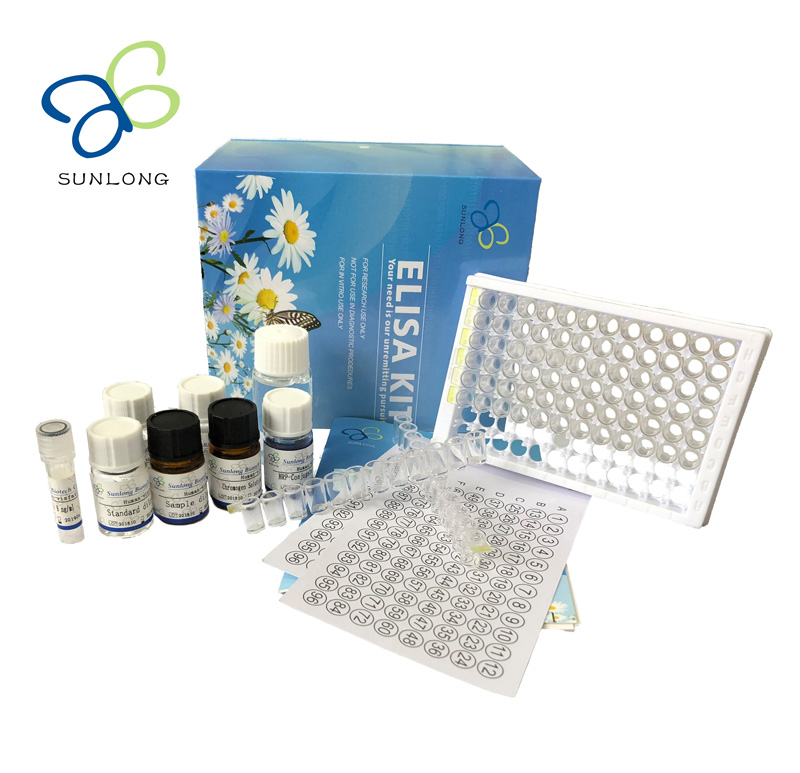Mouse TNF-α(Tumor Necrosis Factor Alpha) ELISA Kit
Catalog No :
CAS Number :
Brand :
In Stock
Assay range:3 pg/ml -200 pg/ml
Sensitivity:0.5 pg/ml
Standard:270 pg/ml
sample Volume:50ul
Wavelength:450nm
Specifications:
| Application | ELISA-Based Assays |
| Storage Temperature | 2-8°C |
| Product Type | Elisa Kit |
| Product Grade | Molecular Biology |
The Mouse TNF-α ELISA Kit provides precise and reliable quantification of TNF-α levels in various biological samples. Accurate sample preparation is critical to obtaining reliable results. This guide outlines the steps for preparing serum, plasma, urine, cell, and tissue samples for the ELISA assay.
1. Serum Preparation
- Blood Collection: Collect whole blood into a suitable container.
- Clot Formation: Allow the blood to clot undisturbed at room temperature for 10-20 minutes.
- Centrifugation: Centrifuge the clotted blood at 2,000–3,000 rpm for 20 minutes.
- Supernatant Collection: Carefully collect the clear serum without disturbing the clot or any precipitates.
- Additional Centrifugation: If precipitates appear during storage, re-centrifuge the serum before use.
2. Plasma Preparation
- Anticoagulation: Collect whole blood into tubes containing anticoagulants like EDTA or citrate.
- Clot Prevention: Incubate the anticoagulated blood at room temperature for 10-20 minutes.
- Centrifugation: Centrifuge the sample at 2,000–3,000 rpm for 20 minutes.
- Supernatant Collection: Carefully collect the plasma supernatant without disturbing the precipitates.
- Additional Centrifugation: If precipitates appear during storage, re-centrifuge the plasma before use.
3. Urine Samples
- Collection: Collect urine into sterile tubes.
- Centrifugation: Centrifuge the urine at 2,000–3,000 rpm for 20 minutes.
- Supernatant Collection: Carefully collect the clear supernatant.
- Additional Centrifugation: Re-centrifuge the sample if precipitates form during storage.
Note: The preparation of cerebrospinal fluid and pleuroperitoneal fluid follows the same procedure as urine samples.
4. Cell Samples
Cell Secretions:
- Culture Collection: Collect cell culture supernatant into sterile tubes.
- Centrifugation: Centrifuge at 2,000–3,000 rpm for 20 minutes.
- Supernatant Collection: Carefully collect the supernatant.
Intracellular Components:
- Cell Preparation: Dilute cells to 1 × 10⁶/mL with PBS (pH 7.2–7.4).
- Cell Lysis: Destroy cells by repeated freezing and thawing to release intracellular contents.
- Centrifugation: Centrifuge the lysate at 2,000–3,000 rpm for 20 minutes.
- Supernatant Collection: Carefully collect the supernatant.
- Additional Centrifugation: Re-centrifuge if precipitates appear during storage.
5. Tissue Samples
- Collection and Storage:
- Cut and weigh tissue samples.
- Freeze in liquid nitrogen and store at -80°C until use.
- Homogenization:
- Homogenize tissue samples in PBS (pH 7.4) at 4°C.
- Centrifugation: Centrifuge the homogenate at 2,000–3,000 rpm for 20 minutes.
- Supernatant Collection: Carefully collect the clear supernatant.
- Aliquoting: Aliquot the supernatant for immediate ELISA testing or future use.
General Notes
- Timely Processing:
- Extract and process samples as soon as possible after collection.
- If ELISA testing cannot be performed immediately, store samples at -20°C.
- Avoid repeated freeze-thaw cycles to preserve sample integrity.
- Avoid NaN₃:
- Sodium azide (NaN₃) inhibits HRP activity and should not be used in any samples or reagents.
Key Considerations
- Follow proper storage and handling protocols to prevent degradation of TNF-α in your samples.
- Ensure samples are free of debris and particulate matter by careful centrifugation.
- Maintain consistent centrifugation speeds and durations for all sample types to ensure uniformity.
This preparation guide ensures that your samples are optimized for accurate and reproducible TNF-α quantification using the Mouse TNF-α ELISA Kit.




 0
0
